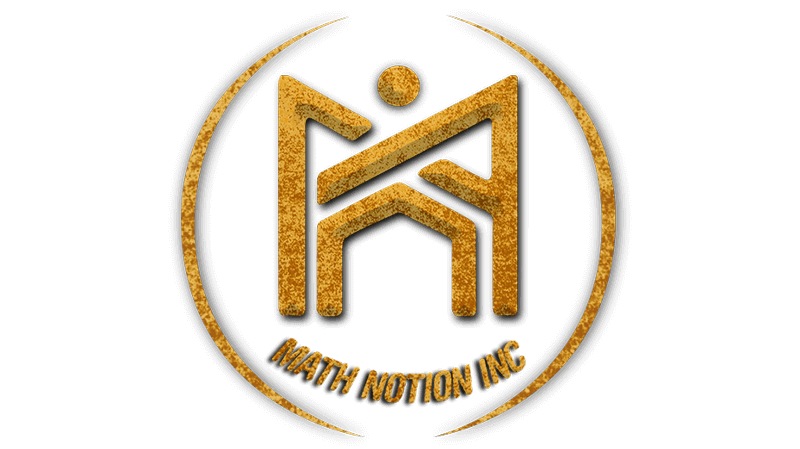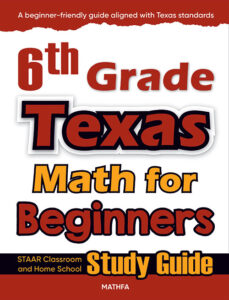
Study Time: 4minutes
6th Grade Texas Math for Beginners: A Comprehensive Guide
Introduction
Mathematics plays a crucial role in shaping a student’s academic journey. In Texas, the 6th Grade Texas Math for Beginners curriculum follows state standards to ensure students build a strong foundation in key math concepts. Mastering these skills is essential for success in middle school and beyond.
This guide provides an overview of the most important topics covered in 6th Grade Texas Math for Beginners, along with practical tips and resources to help students excel in their studies. Whether you are a student, teacher, or parent, this article will serve as a valuable resource for understanding and practicing 6th-grade math concepts.
Understanding the 6th Grade Texas Math Curriculum
The 6th Grade Texas Math for Beginners curriculum is designed to develop students’ problem-solving abilities and strengthen their understanding of fundamental math concepts. The curriculum is aligned with the Texas Essential Knowledge and Skills (TEKS) standards, ensuring that students acquire essential math skills systematically.
Here are the key topics covered in 6th Grade Texas Math for Beginners:
1. Number Operations and Fractions
Students in 6th Grade Texas Math for Beginners learn how to work with whole numbers, decimals, and fractions. Some of the main concepts include:
-
Understanding place value and number properties
-
Adding, subtracting, multiplying, and dividing fractions and decimals
-
Converting between fractions, decimals, and percentages
-
Comparing and ordering rational numbers
2. Ratios, Rates, and Proportional Relationships
One of the essential topics in 6th Grade Texas Math for Beginners is understanding ratios and proportional relationships. Key concepts include:
-
Writing and simplifying ratios
-
Understanding unit rates and proportional reasoning
-
Solving real-world problems using proportions
-
Applying ratio concepts to measurement and conversions
3. Expressions, Equations, and Algebraic Thinking
As students progress in 6th Grade Texas Math for Beginners, they are introduced to algebraic concepts such as:
-
Writing and evaluating algebraic expressions
-
Using variables to represent numbers in equations
-
Solving one-step and two-step equations
-
Understanding inequalities and graphing solutions on a number line
4. Geometry and Measurement
Geometry is an exciting part of 6th Grade Texas Math for Beginners, helping students understand shapes, angles, and measurement concepts. Important topics include:
-
Identifying types of angles and their relationships
-
Finding the area, perimeter, and volume of geometric figures
-
Understanding coordinate planes and plotting points
-
Exploring transformations such as rotations, reflections, and translations
5. Data Analysis and Probability
Students in 6th Grade Texas Math for Beginners develop skills in analyzing and interpreting data. Key topics include:
-
Reading and creating bar graphs, line graphs, and histograms
-
Understanding mean, median, mode, and range
-
Exploring basic probability and predicting outcomes
-
Solving real-world problems using data interpretation skills
Effective Strategies for Mastering 6th Grade Texas Math for Beginners
To succeed in 6th Grade Texas Math for Beginners, students should follow these strategies:
1. Practice Regularly
Mathematics requires continuous practice. Work on worksheets, online exercises, and textbook problems daily to strengthen your understanding of key concepts.
2. Break Down Complex Problems
When facing a difficult math problem, break it down into smaller steps. Solving problems step by step improves comprehension and accuracy.
3. Use Visual Aids
Graphs, charts, and diagrams help students grasp complex topics in 6th Grade Texas Math for Beginners. Visualizing problems makes it easier to understand and solve them.
4. Apply Math to Real-Life Situations
Using math in everyday activities—such as budgeting, cooking, or measuring distances—reinforces learning and builds confidence.
5. Take Advantage of Online Resources
There are many free online tools, such as interactive games, video tutorials, and quizzes, designed to support students in 6th Grade Texas Math for Beginners. Websites like Khan Academy, IXL, and Mathway offer valuable learning resources.
Common Challenges in 6th Grade Texas Math for Beginners and How to Overcome Them
Many students find certain topics in 6th Grade Texas Math for Beginners challenging. Here are some common difficulties and tips for overcoming them:
1. Struggling with Fractions and Decimals
-
Practice converting between fractions, decimals, and percentages.
-
Use real-life examples like cutting a pizza or dividing money.
2. Difficulty Understanding Ratios and Proportions
-
Draw visual models to represent ratios.
-
Relate ratios to common scenarios, such as comparing prices in a store.
3. Confusion with Algebraic Expressions
-
Start with simple equations before progressing to complex ones.
-
Use hands-on activities like algebra tiles to visualize equations.
4. Geometry Challenges
-
Use physical objects or drawing tools to explore geometric shapes.
-
Practice identifying shapes and their properties through fun games.
Why 6th Grade Texas Math for Beginners is Important
A strong foundation in 6th Grade Texas Math for Beginners prepares students for success in higher-level math courses. Mastering these concepts helps students develop:
-
Critical thinking skills: Math teaches logical reasoning and problem-solving.
-
Confidence in numbers: Understanding basic math concepts makes daily calculations easier.
-
Preparation for standardized tests: Many state assessments and entrance exams include 6th-grade math topics.
Conclusion
Mastering 6th Grade Texas Math for Beginners is an essential step in a student’s academic journey. By focusing on key topics such as number operations, ratios, algebra, geometry, and data analysis, students build a strong math foundation.
Success in 6th Grade Texas Math for Beginners requires consistent practice, real-world application, and the use of engaging resources. Whether you’re a student aiming to improve your skills or a parent looking to support your child, this guide provides the necessary tools to excel in 6th-grade math.
Keep practicing, stay curious, and enjoy the journey of learning math!


